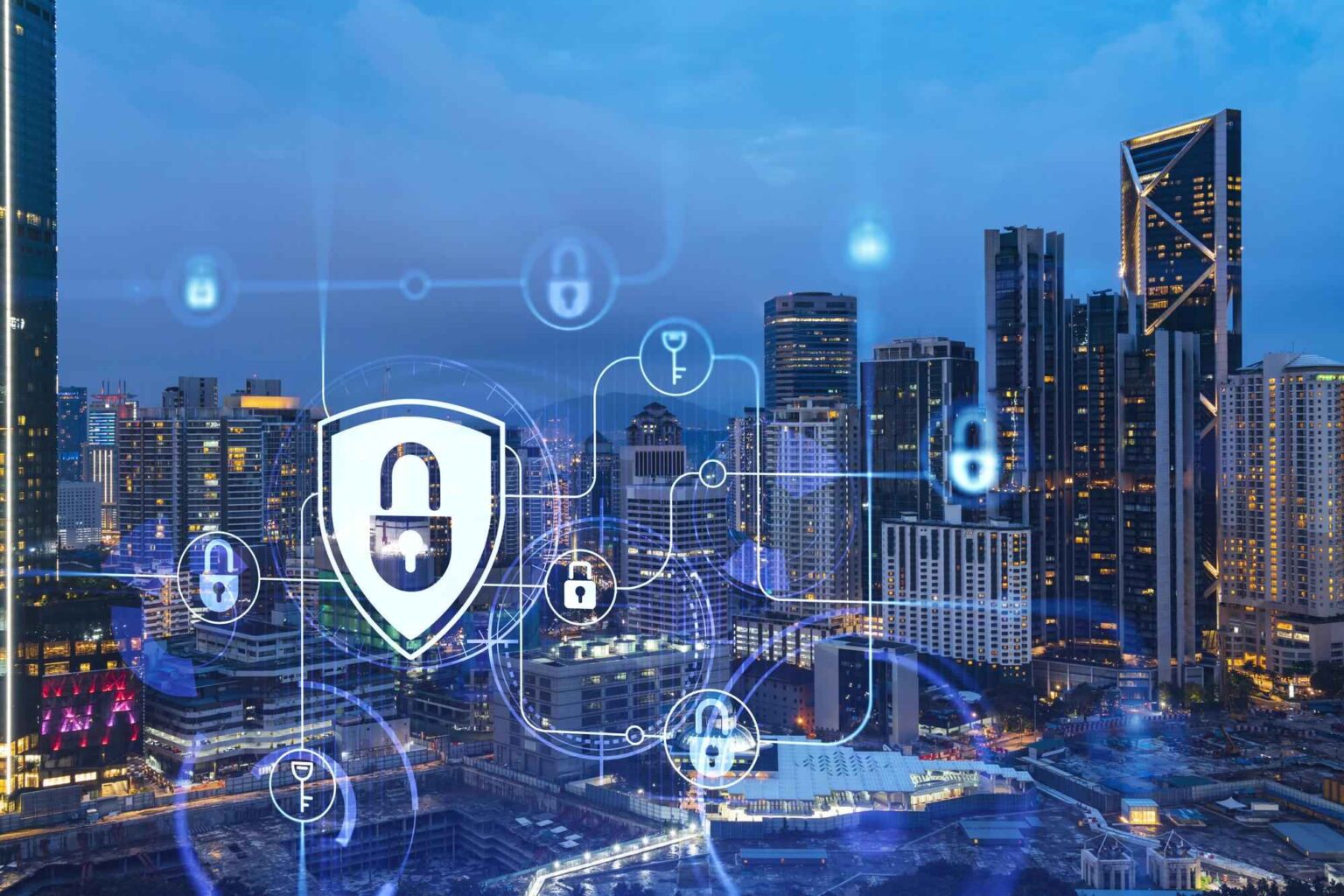Cybersecurity is a critical aspect of smart cities as the increased connectivity and digitization of infrastructure and services also introduce new vulnerabilities and risks. Safeguarding critical infrastructure and personal data is essential to ensure the resilience and trustworthiness of smart cities. Here are key considerations for cybersecurity in smart cities:
Threat Detection and Prevention: Smart cities employ advanced threat detection systems to identify and mitigate cyber threats in real time. Intrusion detection systems, security information and event management (SIEM) solutions, and advanced analytics help monitor network traffic, identify suspicious activities, and respond promptly to potential threats. Continuous monitoring and timely incident response are crucial to maintaining the security of critical infrastructure and systems.
Secure Communication and Data Protection: Encryption and secure communication protocols are fundamental in smart cities to protect sensitive data transmitted between devices, systems, and stakeholders. Strong encryption methods and authentication mechanisms are implemented to prevent unauthorized access and data breaches. Additionally, data protection measures, including access controls, data anonymization, and privacy-enhancing technologies, are employed to ensure the privacy and security of personal data collected and processed in smart city environments.
Resilient Infrastructure Design: Smart cities prioritize resilience in their infrastructure design to withstand cyber-attacks and recover quickly from disruptions. This includes employing defense-in-depth strategies, redundancy in critical systems, and regular security assessments to identify vulnerabilities and implement necessary safeguards. By adopting resilient design principles, smart cities can minimize the impact of cyber incidents and maintain the continuity of essential services.
Public-Private Collaboration: Collaboration between public entities, private organizations, and cybersecurity experts is crucial to address the evolving cyber threats in smart cities. Public-private partnerships can facilitate information sharing, joint risk assessments, and the development of cybersecurity standards and best practices. Engaging cybersecurity professionals and experts can help cities stay updated on emerging threats and implement effective security measures.
User Awareness and Education: Educating citizens, businesses, and employees about cybersecurity risks and best practices is essential for creating a cyber-aware culture in smart cities. Training programs, public awareness campaigns, and workshops can promote responsible digital behavior and help individuals understand the importance of protecting their personal information and devices. By fostering a cybersecurity-conscious community, smart cities can collectively contribute to a safer digital environment.
Incident Response and Recovery: Smart cities establish robust incident response plans to effectively manage and recover from cyber incidents. These plans include predefined roles and responsibilities, communication protocols, and procedures for incident reporting, investigation, and mitigation. Regular drills and exercises simulate cyber-attack scenarios to test the effectiveness of response plans and identify areas for improvement.
Regulatory and Compliance Frameworks: Smart cities adhere to relevant cybersecurity regulations and standards to ensure compliance and accountability. Governments establish regulatory frameworks that outline security requirements and guidelines for smart city infrastructure, services, and data protection. Compliance with industry standards, such as ISO 27001 for information security management, further demonstrates the commitment to cybersecurity in smart city initiatives.
By prioritizing cybersecurity measures, smart cities can mitigate risks and safeguard critical infrastructure, services, and personal data. It requires a proactive and holistic approach that encompasses technology, policies, collaboration, and public awareness. By building resilient and secure smart city ecosystems, we can leverage the benefits of digitization while protecting the privacy, safety, and trust of citizens and businesses.



